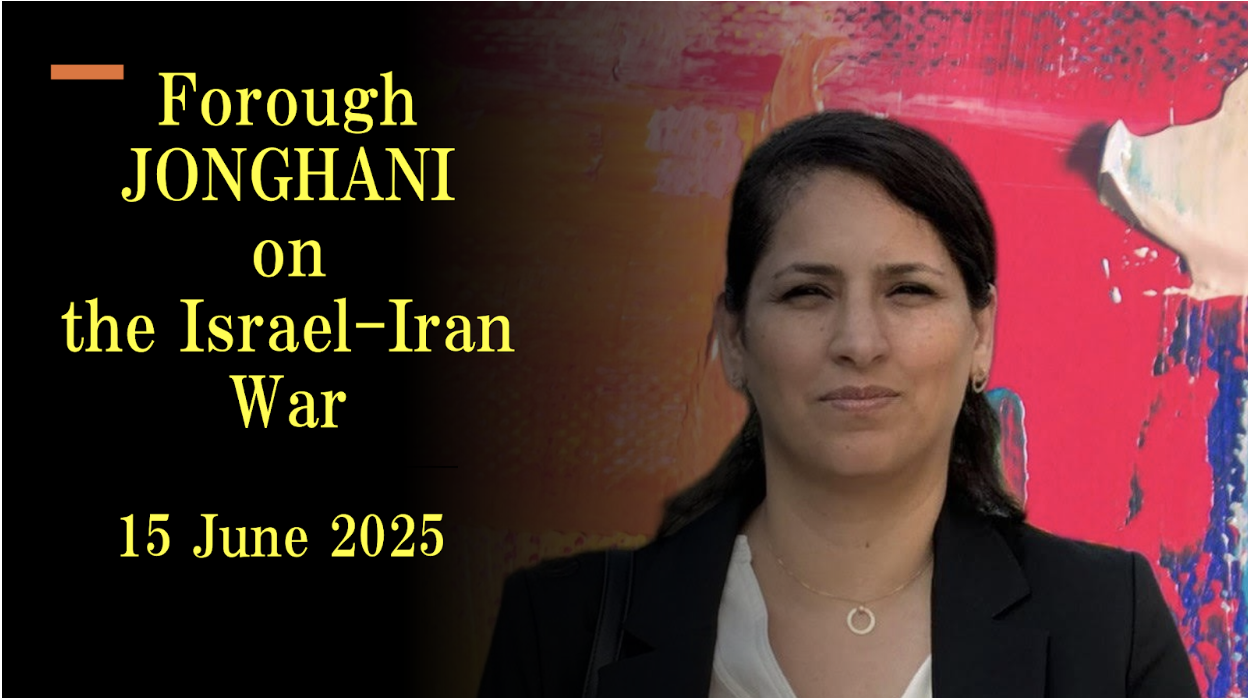A GPAJ member, Forough JONGHANI, shares her views and interpretations of the Japan Times article which was published on 14 June and invites the readers to comment. Please click here for her full views.
The (Japan Times) article captures the complexities of Israel’s recent military strikes on Iran, highlighting both its immediate and longer-term objectives. Israel aims to disrupt Iran’s nuclear program due to its long-standing security concerns about a nuclear-armed Islamic Republic. The operation also seeks to destabilize Iran’s leadership by targeting not only nuclear infrastructure but also key figures within its military and scientific hierarchy. This broader strategy reflects Israel’s hope that the strikes could weaken the regime to the point of collapse, potentially paving the way for a more moderate government that poses a weaker threat in the region. Prime Minister Netanyahu’s direct appeal to the Iranian people emphasizes this longer-term goal, signalling a shift in strategy by addressing the regime directly while encouraging dissent within the population.
As a new way of conducting war, this approach blends military action with psychological efforts to influence public opinion. While the strategy opens the door to regime change, the challenges are significant, given Iran’s entrenched leadership and its resistance to outside interference. However, some Iranians view this as a rare opportunity for change. In the broader Middle Eastern context, authoritarian regimes, sectarian divides, and historical grievances, especially in Iraq, Syria, Lebanon, Yemen, and Afghanistan, have fuelled the ongoing instability. Iran’s role in supporting terrorism and fundamentalist movements worsens these issues, complicating conflicts like the Israeli-Palestinian dispute and raising concerns about regional security. As such, the Islamic Republic appears weaker than ever, and regime change could end decades of repression against its people. Israel likely cannot dismantle Iran’s nuclear program without US cooperation, stressing the importance of global support to address the threat posed by a nuclear-armed Iran. Such a development would endanger not only Israel but other nations as well, making international collaboration crucial to resolving this escalating crisis.
The next step in pursuing regime change is to support the opposition. The regime cannot be overthrown unless a viable alternative exists to fill the power vacuum. Opposition groups are uniting around democratic principles under Reza Pahlavi’s leadership for a transitional period. At the Munich Convergence Summit (2025), he was recognized as the leader of the movement until free elections could be held. While other opposition groups remain active, many Iranians prefer Reza Pahlavi as a unifying figure who prioritizes national unity over ideology. Even among Iran’s elite, he is seen as the most credible alternative.
Leaders committed to the rule of law and human rights are essential for building trust and ensuring the success of any transitional justice process. Unified leadership is critical to meeting the country’s most pressing needs. A transitional leader must secure international aid, encourage military defections, uphold human rights, and avoid ties to the current regime. Reza Pahlavi is widely regarded as the only figure with the necessary sociopolitical legitimacy and capability. His proposal includes the temporary use of the Constitutional Law (Qanun-e Asasi-e Mashruteh) to bridge the power vacuum. This law guarantees equality for all Iranians, regardless of belief, language, ethnicity, or gender and ensures territorial integrity during the transition. It provides a stable framework until free and fair elections can be held. Reza Pahlavi, as the exiled Crown Prince, has also the legal right to access Iran’s blocked funds, which will be essential for addressing the needs of the Iranian people during the transitional phase.
The regime will not fall through non-violent resistance alone. It is unlikely to hand over power without deploying military forces and heavy weaponry in urban areas. The opposition cannot persuade Israel or the US to abandon strikes on infrastructure and nuclear facilities or push them to target the regime’s decision-making centres. However, it is necessary to highlight the risks. Bombing infrastructure could be abused by the regime to gain legitimacy and will not deter its nuclear ambitions. Removing or disrupting the regime’s decision-making and suppressive systems, on the other hand, could mobilize the Iranian people and align them with international efforts, bringing segments of society into the streets and increasing pressure on the current regime.





